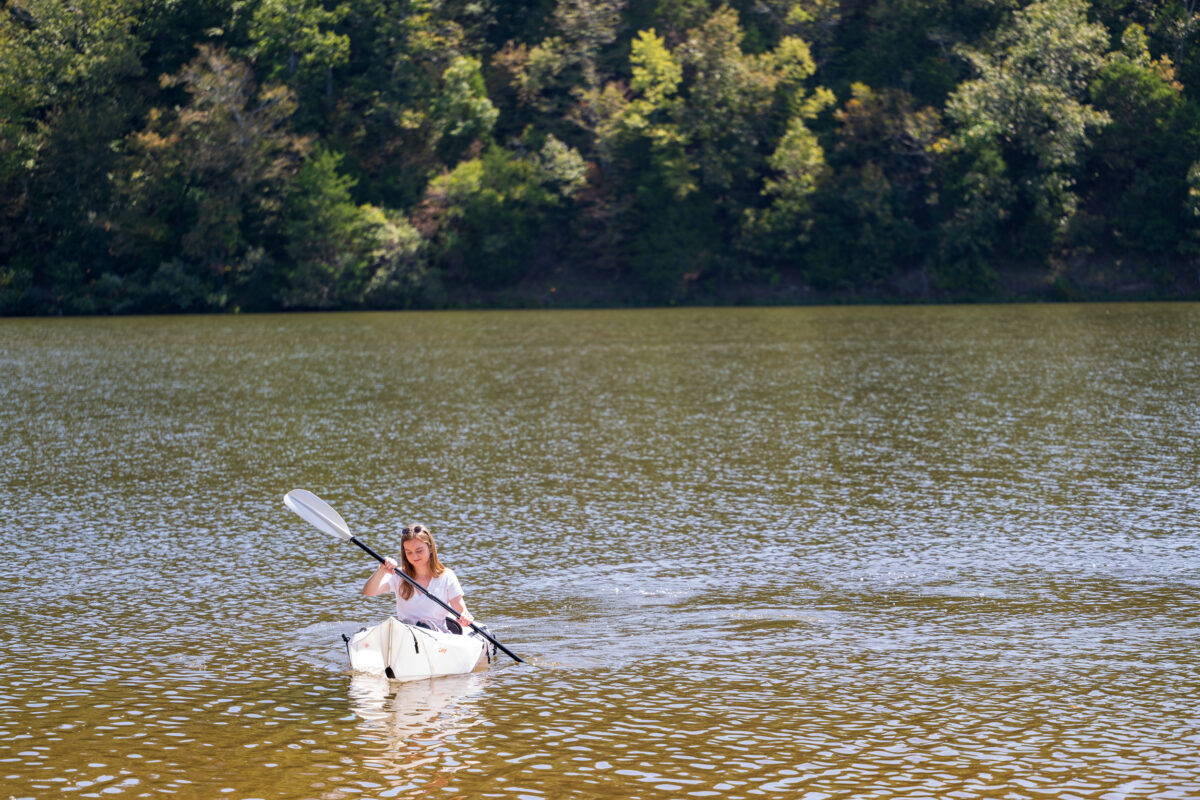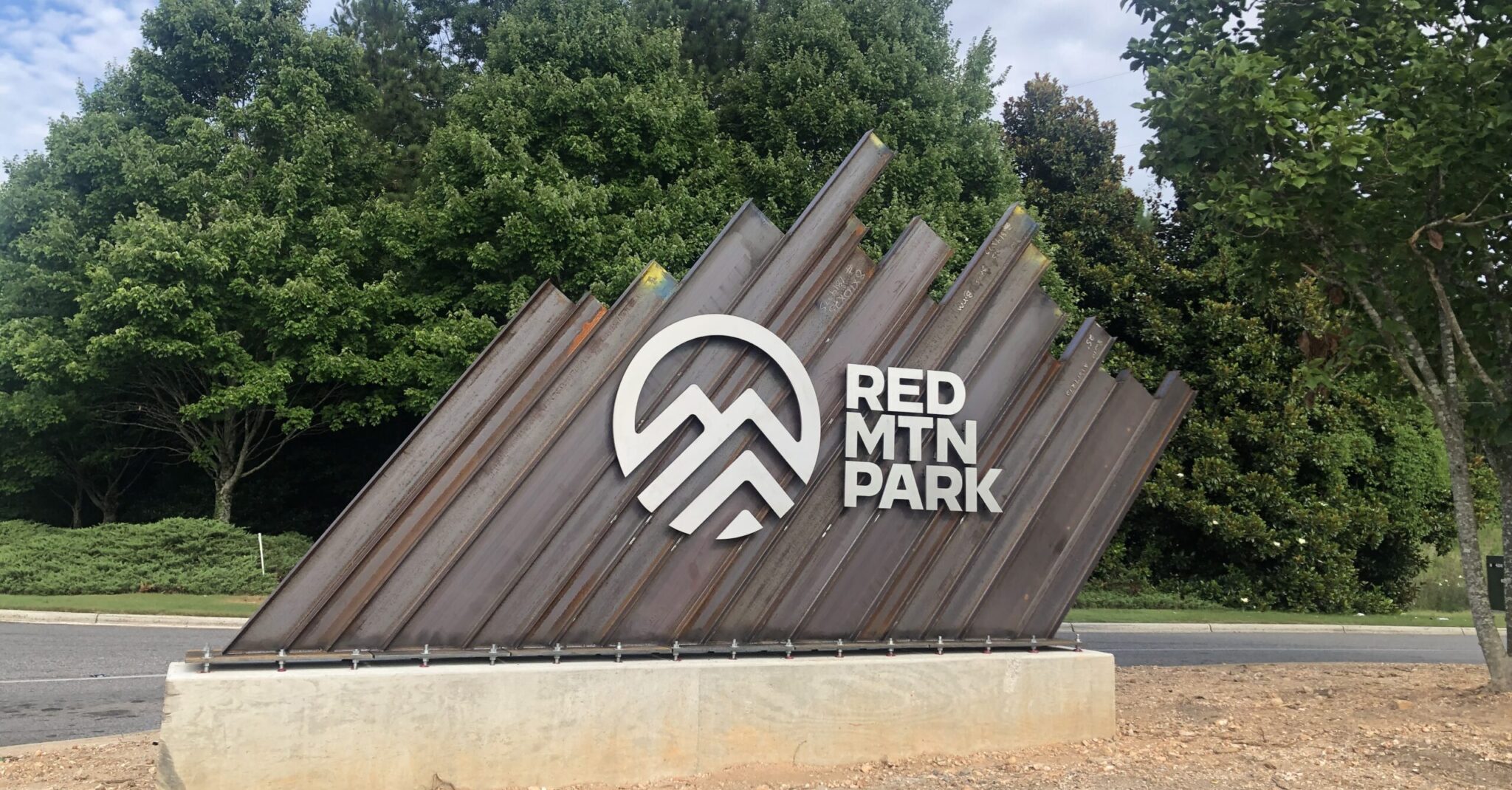7 ways to replace your lawn in Birmingham with something more beautiful
Reading time: 6 minutes

With people spending a lot more time at home since March 2020, not only is there increased demand for houses, but homeowners are getting creative about how they use the space they’ve got. One trend we’re curious about is people deciding to replace or minimize their lawns. Keep reading to find out what we learned.
Three Birminghamians leading the trend away from lawns
To learn more about this trend, we spoke to three locals who are leading the way in terms of replacing lawns with native plants or edibles:
- Michael Imhof is a Homewood resident who works as an environmental consultant with LaBella Associates.
- Michelle Reynolds, a Roebuck resident, is an artist and urban environmentalist who writes and speaks extensively about the joys of minimizing your lawn.
- Trevor Mann, a Bessemer resident, is a permaculturist who runs Walden Foodscapes, an ecological land design and installation company that focuses on creating edible ecosystems.
Here’s what they told us.
1. If you replace your lawn, it can lead to a lot of creativity + enjoyment

“I like the idea of dividing the lawn or yard into themed spaces to get the most enjoyment out of outdoor living.
Garden plots can invoke a sense of place. Kitchen gardens, outdoor rooms, places for play, flower borders, mini forests, micro prairies, rain gardens, habitat gardens for wildlife, pathways to take you from one space to another…all these can be places for creativity and imagination.
These spaces change the focus of time spent outdoors, from the mundane chores of constant maintenance to more recreation and relaxation.”
Michelle Reynolds
2. Some people want to minimize their lawn to replace it with something more functional, beautiful + ecological

When people reach out to Trevor Mann of Walden Foodscapes, he starts with an initial consultation and design process, where they come up with a plan for how best to use the space.
Lately he’s been planting edible forest gardens for people, and then helping to guide the garden through the stages of ecological succession.
“Succession is where you can imagine that you’re standing in a field, and you kind of zoom through time. You watch the field grow from grasses to brambles, shrubs and small trees, and then all the way up to the canopy of a forest.
You guide succession by picking the species, almost like you are a composer and you’re picking different instruments. That creates a symphony of life.”
Trevor Mann, Walden Foodscapes
3. Planting native perennials is a good way to start to replace your lawn

“I’ve planted all kinds of native perennials for the bugs, which I consider the plankton of the forest.”
—Michael Imhof
4. Creating borders along existing hardscaping is a great way to get started

“You don’t have to have an elaborate plan; just know that you want to get rid of some of your grass. You can either start with a border around your yard, or islands around trees, or borders along pathways.
Basically, pick hardscape that’s already there—your driveway, your sidewalk, your street side, the border in front of your house—choose those areas and just expand them.”
Michelle Reynolds
5. The lasagna method is a good way to get started

Michelle Reynolds and Trevor Mann both said there’s a hard way and an easy way to get rid of your grass. The hard way is to rent a sod cutter, cut all the grass and flip it over—that will kill it.
But an easier way is what they both refer to as the “lasagna method” or the “sheet mulch” method:
- Get cardboard with no wax or dyes on it—bike stores and appliance stores are good places to look.
- Lay down the cardboard. Some people put compost or a good soil mixture down first; some people put it on top. Reynolds usually orders a truckload of good soil and mixes it with compost or compost and sand.
- Cover with mulch—leaves, wood chips or pine straw.
- Reynolds likes to leave it for a season until everything begins to break down. This gives you time to get your plants and plan a big workday to get everything in the ground.
- Rake all your leaves or pine straw into this area, rather than bagging them up for trash pickup.
6. Plant for the year + natives are your friends when you want to replace your lawn

Reynolds likes to start off by planting the things that are going to be there for all seasons, such as evergreens like Cherokee Sedge. Next she likes to plant spring-blooming plants that will invite hummingbirds, such as Columbines. From there, she plans summer bloomers like Black-eyed Susans. Finally, she likes to put in fall plants like asters.
“Then you have this whole four-season garden. And you just keep plugging in the empty spots with either self-seeders or do plugs of coneflowers and Black-eyed Susans that are easy to grow, they look good and they bloom a long time.”
Michelle Reynolds
Her favorite hashtags to follow on Instagram:
- #nativeplant
- #backyardbiodiversity
- #plantthisnotthat
- #habitatgardenclub
Michael Imhof also rattled off a list of some of his favorites. He cited Petals from the Past, down in Jemison, as a good source.
7. You can also include non-plant elements when you replace your lawn

Because once you’ve done all that hard work, why not sit down and enjoy your garden with some friends or family? An in-ground firepit with rustic seating options and gravel surrounding it is another great way to carve out a newly-functional area in what used to be your lawn.
Now tell us, Birmingham, what other fun things have you seen people do with their lawns? Tag us on social @bhamnow and let us know!

 17249 views
17249 views

